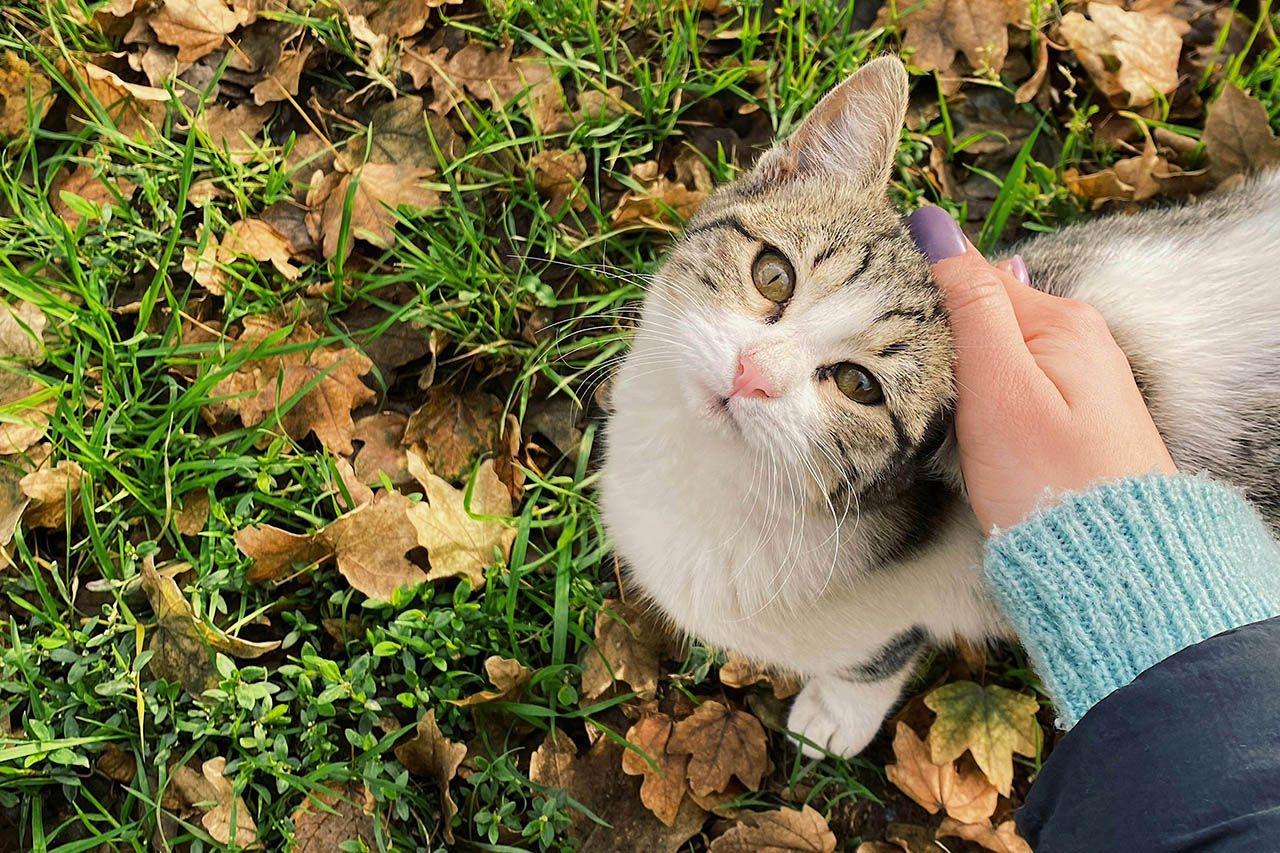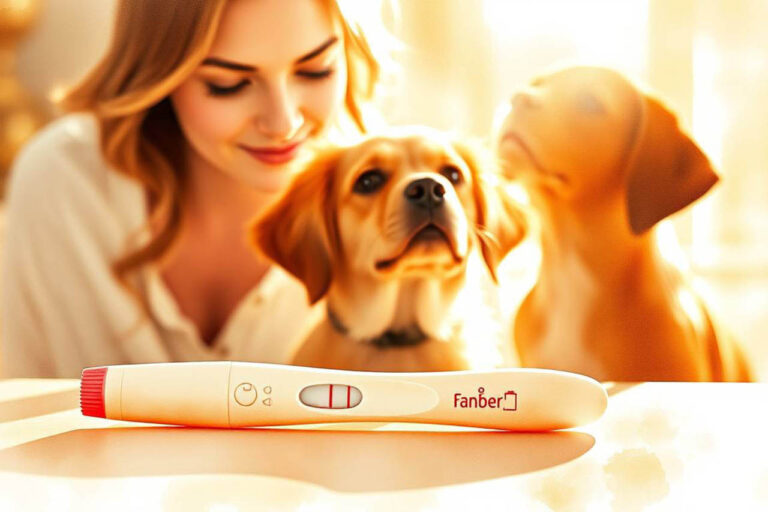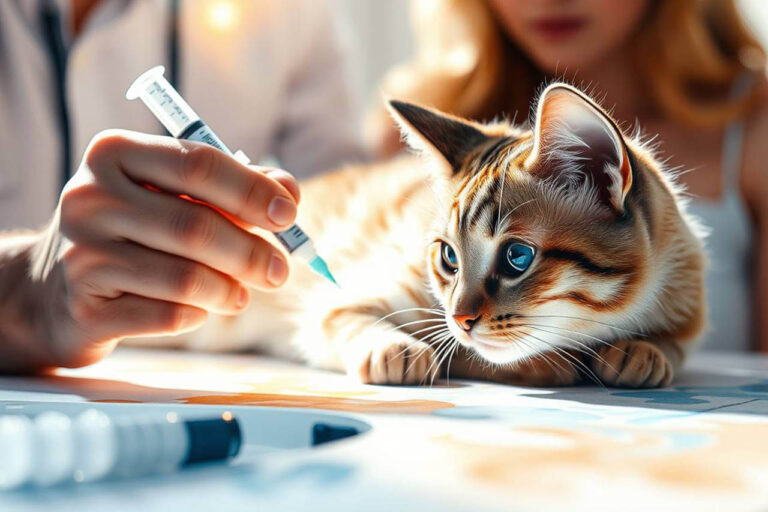Your cart is currently empty!
Home Testing for FIV and FeLV in Cats
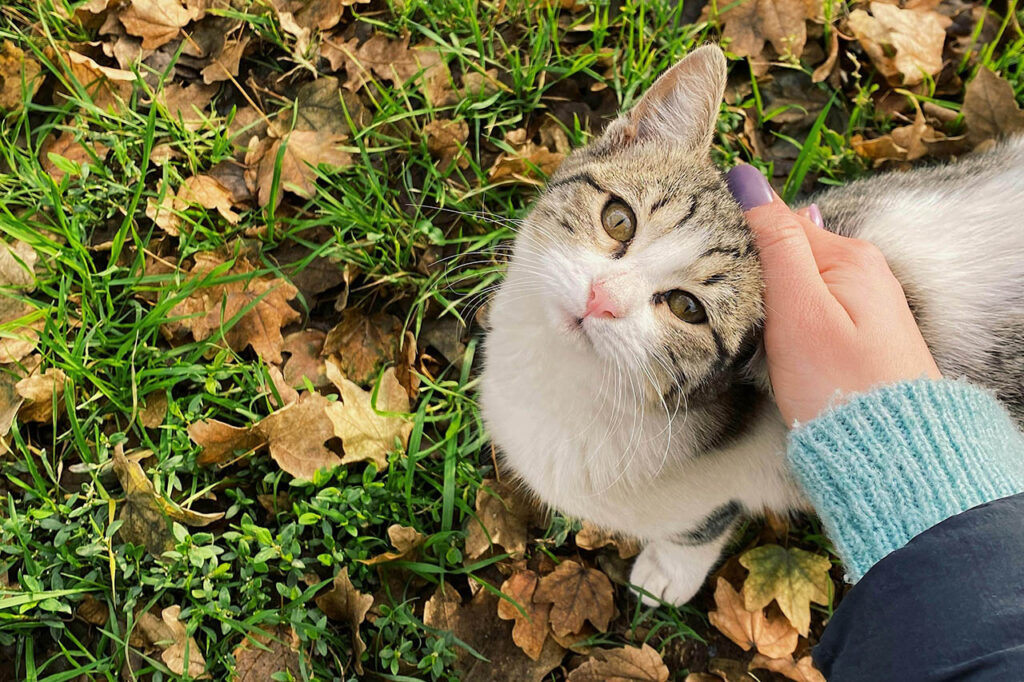
Feline Immunodeficiency Virus (FIV) and Feline Leukemia Virus (FeLV) are serious viral infections that compromise cats’ immune systems, making them susceptible to a range of secondary illnesses. FeLV, often referred to as feline leukemia virus, can lead to severe anemia, immune suppression, and an increased risk of cancer. FIV, sometimes called feline AIDS or feline immunodeficiency virus, weakens a cat’s ability to fight off infections. Both conditions can significantly impact a cat’s health and often remain asymptomatic until the disease progresses. Early detection is critical for effective management, and home testing kits offer a simple, cost-effective solution for cat owners to monitor their pets’ health.
Testing for FeLV and FIV is considered a basic and recommended screening for kittens and adult cats, particularly those entering a household with other cats or those with unknown medical histories.
Signs and Symptoms of FIV and FeLV
Early Signs of FIV in Cats:
- Swollen lymph nodes, indicating an early immune response to the virus.
- Mild fever, often one of the first signs of FIV.
- Occasional sneezing or runny nose, which may be mistaken for mild respiratory issues.
- Slight weight loss or reduced appetite, which could signal early infection.
Progressive FIV Symptoms in Cats:
- A weakened immune system, leading to frequent infections.
- Weight loss, poor coat condition, and gum disease (stomatitis).
- Chronic illnesses such as respiratory infections, diarrhea, or skin conditions.
Early Signs of FeLV in Cats:
- Lethargy and decreased activity.
- Mild fever, which may indicate early FeLV infection.
- Loss of appetite.
- Pale gums due to early anemia.
Progressive FeLV Symptoms in Cats:
- Severe anemia, lethargy, and weight loss.
- Increased susceptibility to infections and a higher risk of cancer (e.g., lymphoma).
- Persistent fever, swollen lymph nodes, and poor appetite.
Both diseases can remain latent for months or even years, underscoring the importance of early detection to improve a cat’s quality of life and longevity. For example, understanding how long a cat can live with feline leukemia or the feline FIV life expectancy can help owners make informed decisions about their pet’s care.
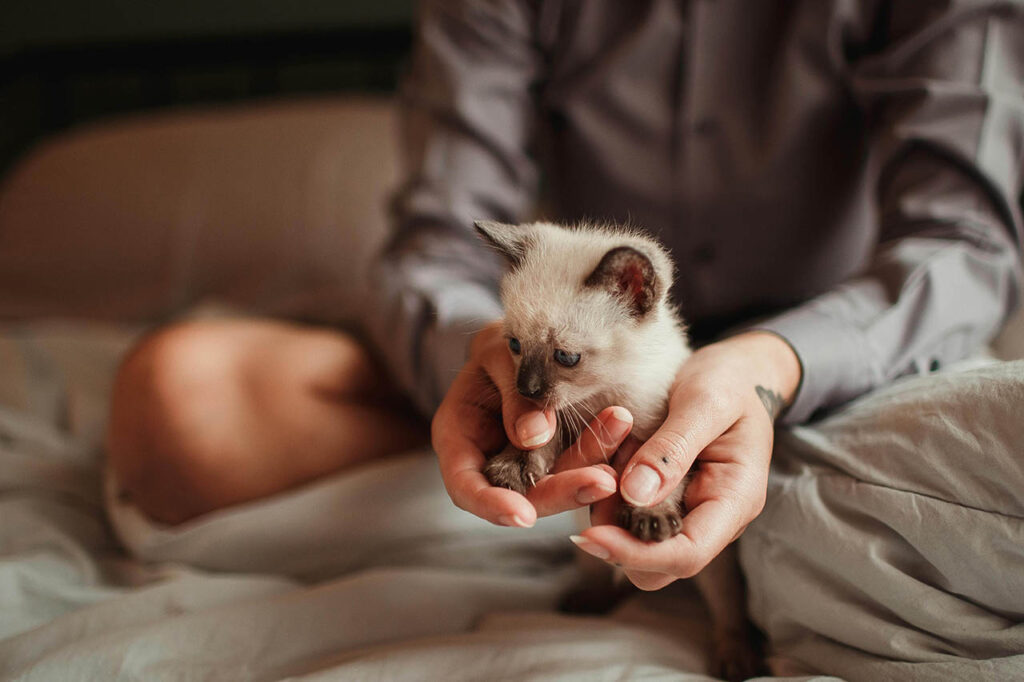
Transmission of FIV and FeLV
- FIV: Primarily spread through deep bite wounds, which is why outdoor cats or those in multi-cat households with a history of fighting are at higher risk. Casual contact, such as sharing food bowls or grooming, is unlikely to transmit FIV. Understanding how cats get FIV is key to preventing exposure.
- FeLV: Transmitted through saliva, nasal secretions, urine, feces, and milk. Cats can contract FeLV through mutual grooming, sharing food or water bowls, or prolonged close contact with an infected cat. Kittens can also acquire the virus from their mother during birth or through nursing.
Cost of FIV and FeLV At-Home Cat Tests
Home testing kits for FIV and FeLV are significantly more affordable than veterinary visits. While veterinary consultations and lab tests can be costly, especially for households with multiple cats or shelters, home testing kits provide a budget-friendly alternative. Early detection through home testing can also prevent the need for expensive late-stage treatments, saving money in the long run.
Check our prices for FeLV and FIV home testing kits here:
- Combo 2-in-1 Test Kits for FIV and FeLV
- Feline Immunodeficiency Virus (FIV) Single Tests
- Feline Leukemia Virus (FeLV) Single Tests
Home Testing Reduces Stress for Cats
Many cats experience high levels of stress during vet visits, making procedures like blood draws challenging. Home testing kits allow pet owners to check their cat’s health in a familiar and comfortable environment, reducing anxiety for both the cat and the owner. This approach also minimizes the need for excessive handling, which can improve the accuracy of test results.
How Reliable Are Rapid Home FIV/FeLV Tests?
Modern home testing kits are designed to be user-friendly, even for those without medical experience. For example, A-PET-CARE One Step rapid test kits come with clear instructions and provide results within minutes. When used correctly, these kits offer high accuracy rates, enabling pet owners to make informed decisions quickly. However, it’s important to note that no home test is 100% accurate, and false positives or negatives can occur. For example:
- Kittens born to FeLV-positive mothers may test positive due to maternal antibodies, even if they are not truly infected. Retesting after 6 months is recommended to confirm their status.
- If results are unclear or inconsistent with your cat’s health, consult a veterinarian for confirmatory testing.
A-PET-CARE One Step home cat tests for FIV and FeLV have the following accuracy:
| Test Type | Relative Sensitivity | Relative Specificity | Relative Accuracy |
|---|---|---|---|
| Feline Leukemia Virus Antigen Test (FeLV Ag): | 96.7% | 99.4% | 98.9% |
| Feline Immunodeficiency Virus Antibody Test (FIV Ab): | 94.9% | 97.4% | 96.6% |
When to Consult a Veterinarian
While home testing kits are a valuable tool for early detection, they should not replace professional veterinary care. If a test result is positive, unclear, or inconsistent with your cat’s health status, consult a veterinarian for confirmatory testing and further evaluation. Veterinarians may use more advanced diagnostic methods, such as PCR testing, to confirm results.
Is There Vaccination Available for FIV and FeLV?
- FeLV: The FeLV vaccine is available and recommended for cats at risk, particularly those that go outdoors or live in multi-cat households. The vaccine is highly effective in preventing infection.
- FIV: There is no widely used FIV vaccine in many countries (e.g., the FIV vaccine was discontinued in the U.S. in 2015 due to concerns about efficacy and interference with testing). The best prevention strategy is to limit exposure to infected cats, especially through bite wounds, which are the primary mode of transmission.
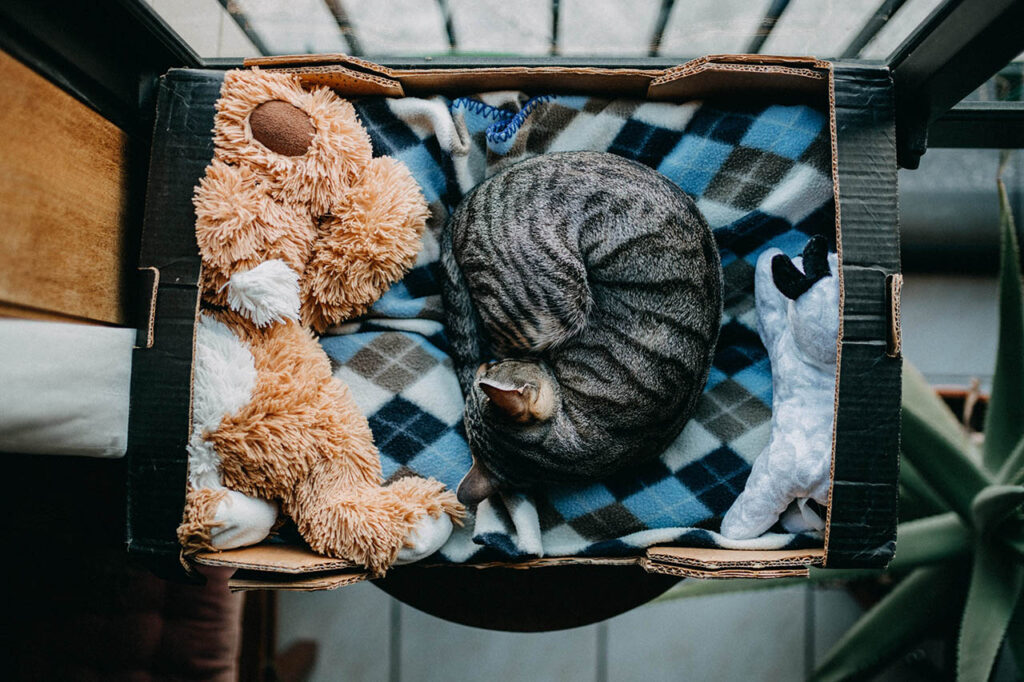
Management of FIV and FeLV
- FIV-Positive Cats: With proper care, FIV-positive cats can live long, healthy lives. Stress reduction, a balanced diet, and regular veterinary check-ups are crucial. Keeping them indoors and away from other cats can prevent the spread of the virus and reduce their risk of secondary infections. Understanding the feline FIV life expectancy and how long a cat can live with FIV can help owners plan for their pet’s care.
- FeLV-Positive Cats: Early intervention and monitoring for secondary infections or cancer are key. FeLV-positive cats should be kept indoors to protect them from exposure to other pathogens and to prevent the spread of the virus to other cats. While can cats live with feline leukemia is a common question, the answer depends on early detection and proper management.
Final Thoughts on FIV and FeLV Testing
A-PET-CARE 2-in-1 at-home testing kits for FIV and FeLV provide a convenient, cost-effective, and stress-free way to monitor your cat’s health. Early detection can lead to better management of these conditions, improving your pet’s quality of life and potentially extending their lifespan. However, home testing should complement, not replace, regular veterinary care. If you’re considering home testing, explore reliable and easy-to-use kits to take control of your cat’s health today.
Additional Resources
For more information on feline leukemia virus (FeLV) and feline immunodeficiency virus (FIV), consult your veterinarian or reputable sources such as the American Association of Feline Practitioners (AAFP).
If you’re looking for a reliable home testing kit, check out A-PET-CARE range of easy-to-use options here:
- Combo 2-in-1 Test Kits for FIV and FeLV
- Feline Immunodeficiency Virus (FIV) Single Tests
- Feline Leukemia Virus (FeLV) Single Tests
Disclaimer
This article is for informational purposes only and is not intended to replace professional veterinary advice, diagnosis, or treatment. Always consult a licensed veterinarian for any concerns about your cat’s health or before making decisions regarding their care. The accuracy of home testing kits may vary, and confirmatory testing by a veterinarian is recommended for any positive or unclear results.
